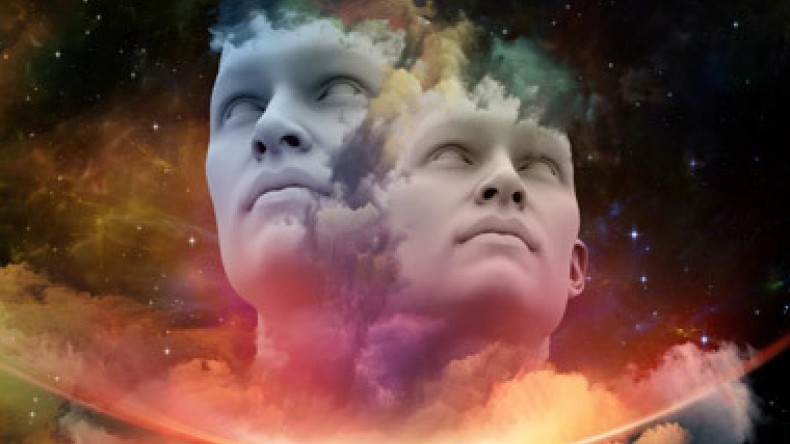
What dreams mean and what they say about you
If you’ve ever tried to decode the meaning of a strange dream, you’re not alone. Humans have been trying to make sense of their bedtime visions since recorded history (and probably before that as well.) One of the most well-known “dream investigators” was Sigmund Freud, but today, thanks to modern technology, we are able to get an even better understanding of what happens when we sleep, Medical Daily reports.
What do we know about dreams?
Technological advances have allowed scientists to study the actual neural activity that goes on when an individual is fast asleep.
In a 2004 study, scientists were able to uncover where in the brain dreams originate. Charcot-Wilbrand syndrome is a rare condition that causes the patient to lose the ability to dream, Scientific American reported. Although the condition is often associated with other more severe symptoms, recently a patient emerged who only had one symptom: the inability to dream. It turned out that she had injured the right inferior lingual gyrus region of her brain during a stroke. This area is also associated with visual processing, emotion, and visual memories. Due to this patient’s unique symptom, the researchers concluded that this area of the brain must be involved with either the generation or transmission of dreaming.
Modern technology has also allowed scientists to learn the mechanisms that go on in dream retrieval. In a 2011 study, a team of Italian scientists measured the electrical brain waves of sleepers and concluded that the reason that dreamers remember their dreams better when awoken during REM sleep is because we exhibit more low frequency theta waves in the frontal lobes during this period. This brain activity is identical to the recollection of memories while we are awake, which means that the neurophysiological mechanisms for remembering dreams and remembering real-life events are virtually the same.
What do dreams say about you?
Dream dictionaries often try to interpret events or images you may have dreamed about, but in reality these descriptions are often relative and based on little (or no) science. This doesn’t mean that dreams mean nothing, however.
Dreams have been observed as useful indicators of what’s on a person’s mind. For example, a recent survey from the Dream Education group DreamsCloud found that those with higher levels of education tended to dream more about work-related situations, such as getting a promotion or dreaming about a co-worker, than less educated people.
"We dream about what concerns us most," Dr. Angel Morgan, who headed the study, explained to The Huffington Post. "When you look at education level, what concerns us most is going to be reflected and influenced in our dreams. ... It just makes sense."
Dreams may also be indicative of a person’s natural abilities. For example, those who report being aware of their dreaming, also known as lucid dreamers, have also been found to be better at solving problems.
"Results show that frequent lucid dreamers solve significantly more insight problems overall than non-lucid dreamers," Dr. Patrick Bourke, lead author of a study on the subject, explained in a press release. "This suggests that the insight experienced during the dream state may relate to the same underlying cognition needed for insight in the waking state."
The kind of dream you have may also offer insight into your personality. According to LiveScience, researchers from Germany’s Central Institute of Mental Health, individuals who report dreams in which they commit murder tended to be more introverted, yet also more aggressive, in real life. Although the study does have its fair share of critics, it does further suggest the delicate link between human psyche and dreaming.
This link may also account for mental illness. A study found that patients living with different mental health conditions often vary in how they described their dreams to others. For example, schizophrenic patients often discuss their dreams using very few words, while bipolar patients tend to speak more excessively and repeatedly, Business Insider reported.
Dreams and your emotions
Although scientists have recently been able to explain some of the biological mechanisms involved with dreaming, when it comes to explaining what these dreams really mean, things can get a bit tricky. Sigmund Freud captivated crowds with his theory that dreams are manifestations of suppressed desires. Others suggest that dreams actually don’t exist at all. Known as the “activation-synthesis hypothesis,” this states that dreams are merely electrical brain impulses that pull random thoughts and imagery from our memories and humans construct these impulses as dreams when we awake in an effort to make sense of the confusion.
The more popular consensus is that dreams do have a purpose, and this purpose is largely connected to our emotions.
“Dreams seem to help us process emotions by encoding and constructing memories of them. What we see and experience in our dreams might not necessarily be real, but the emotions attached to these experiences certainly are,” wrote Dr. Sander van der Linden, a doctoral researcher in social experimental psychology at the London School of Economics and Political Science, in his article for Scientific American. “Our dream stories essentially try to strip the emotion out of a certain experience by creating a memory of it. This way, the emotion itself is no longer active.”
A study published by Dr. Matthew Walker and his colleagues at the Sleep and Neuroimaging Lab at UC Berkeley also presented evidence linking emotions and dreams. Walker and his team found that a reduction in REM sleep resulted in a reduced ability to understand complex emotions in daily life.
Despite the fact that technology has vastly expanded our understanding of dreaming, much of what occurs when we’re asleep remains as it always has: a mystery.
Newsfeed
Videos






























